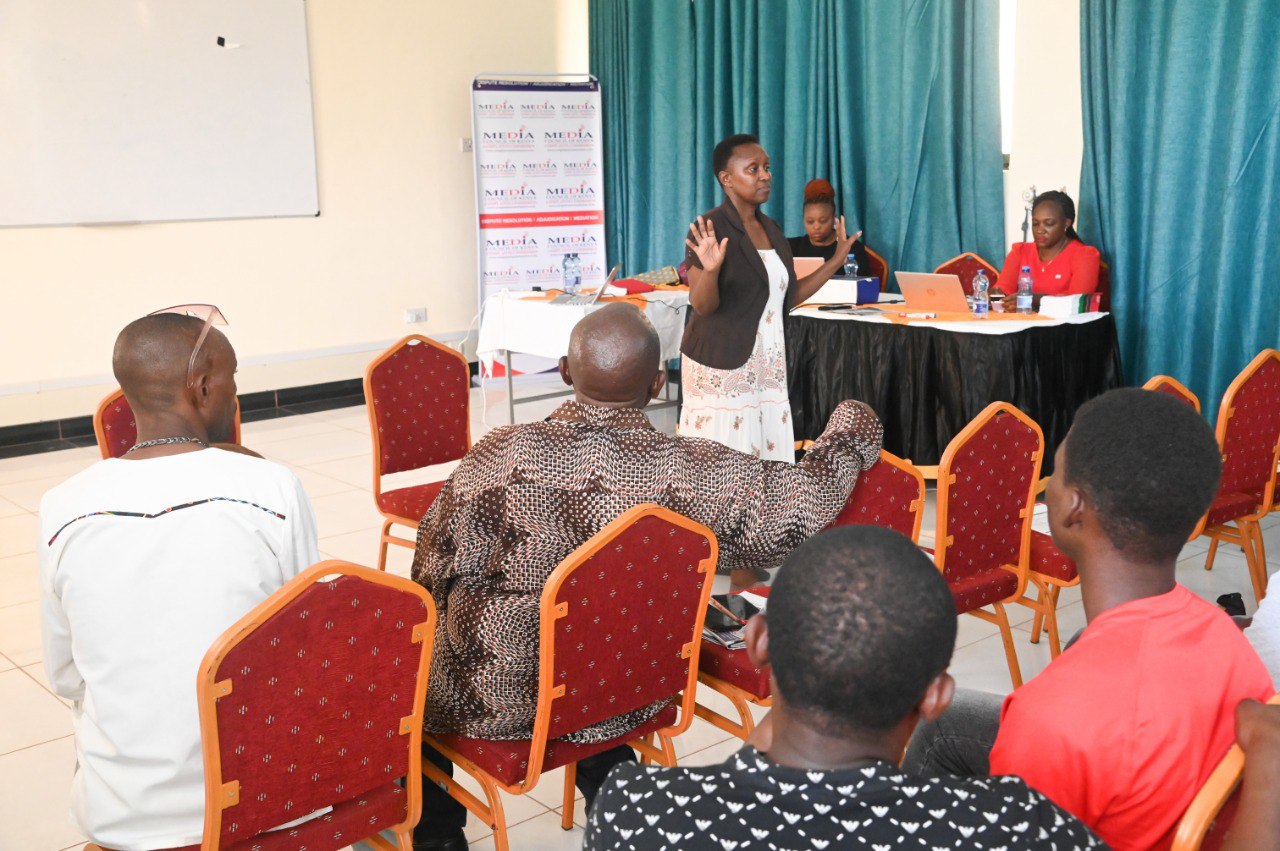
The Media Council of Kenya has partnered with different stakeholders in marking this year’s World Radio Day set to be held in Mombasa on 13 February.
This year’s celebrations will focus on radio as a tool for peacebuilding, with the theme Radio and Peace.
In preparation for the global observance, the Council is collaborating with the Communications Authority of Kenya, Kenya National Commission for UNESCO, Technical University of Mombasa and Al-Shifaa Media in undertaking activities aimed at driving the theme.
Some of the pre-event activities include a media practitioners training, media viability engagement with station managers, accreditation and a football match between stakeholders dubbed “WRD 023 Amani Cup” in line with the theme of the celebrations.
During the media practitioners training, MCK Assistant Director for Media Training and Curriculum Development Ms Christine Nguku underscored the importance of adherence to journalistic ethics while reporting on conflicts.
“To minimise the broadcast of hate speech and derogative quotes, you need to embrace the use of paraphrasing as a filter tool to help siphon out the unwanted parts that go against the Code of Conduct and pass relevant information to your audience”, said Ms Nguku during a training of media practitioners from the Coast region at the Technical University of Mombasa.
She encouraged the media practitioners to take charge and censure rogue guests whose utterances go against the Code of Conduct for the Practice of Journalism in Kenya.
“During on air broadcast, you as the journalist, have the right to cut off callers and guests in instances where their content is provocative or out of context to avoid breaches of the Code. Always inform your audience accordingly”, she said.
She said adherence to the code of conduct exists to protect journalists who employ ethics in their reporting whenever a complaint is brought before the Media Complaints Commission.
She also noted that the media practitioners training and accreditation was aimed at fostering compliance as the FM radio realm keeps expanding grounds in the country.
“It also promotes the execution of the Council’s mandate to promote high professional standards among journalists and media practitioners in Kenya”, she said.
Other sessions covered at the training included access to information, gender sensitive reporting, the Code of Conduct for the Practice of Journalism in Kenya, misinformation and fact checking.
Earlier, the together with Communications Authority, the Council officials met the Technical University of Mombasa acting Vice Chancellor and Deputy Vice Chancellor Academic Affairs, Research and Extension Prof Peter Gichangi who commended MCK for its continued support to media development in the country.
“I laud the Council’s support to media growth through capacity building and infrastructural development. The Council’s support to the establishment of our institution’s radio station is a big step in supporting media for national development”, said Prof Gichangi.
MCK’s Assistant Director for Training and Curriculum Development Christine Nguku who led the Council’s team elaborated the Council’s efforts in promoting press freedom and responsible journalism in Kenya.
“We are deliberately implementing training programmes through the Africa Media Academy to ensure that journalists are equipped to report professionally on matters of national interest and thematic areas such as the blue economy and climate change among others”, she said.
The Media Complaints Commission Vice Chair Esther Aduma explained the role of the Commission in mediation of media disputes as alternative to the courts.
“Journalists need to familiarise with and adhere to the Code of Conduct for the Practice of Journalism in Kenya, on which the Commission bases its undertakings”, said Ms Aduma.